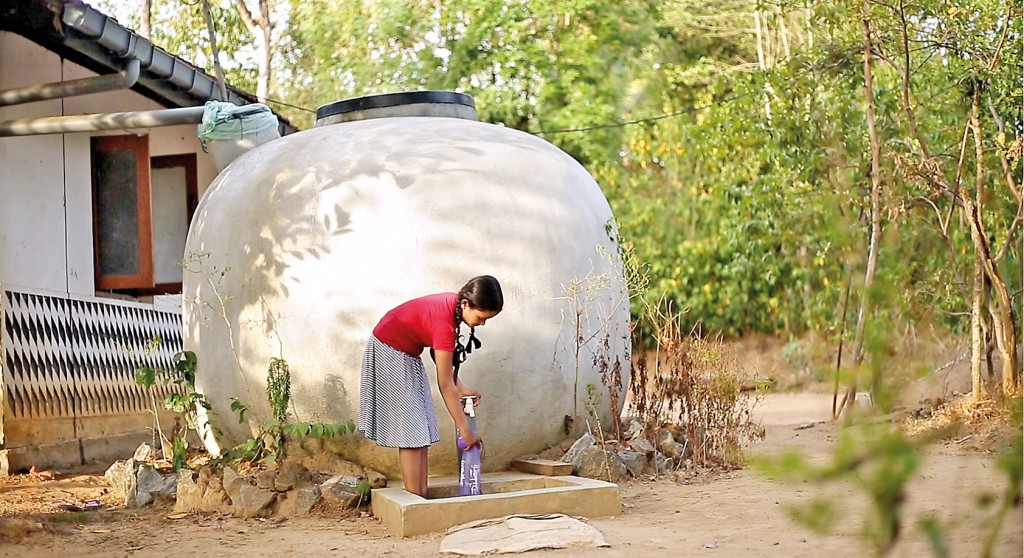News
Rainwater Harvesting project nears completion
View(s):Lanka Rainwater Harvesting Forum (LRWHF), a project to provide safe, disaster-resilient drinking water to flood and drought prone areas, initiated in 2016, is nearing completion.

RWH is the process of collecting run-off rainwater for domestic use, agriculture, soil conservation, and environmental management.
Directed in Kilinochchi, Badulla, Moneragala and Batticola areas, this project is funded by the United States Agency for International Development (USAID) in partnership with the PALM Foundation in Sri Lanka.
LRWHF CEO Dr. Tanuja Ariyananda says, “Rainwater harvesting (RWH) is not new to our country. In fact, the very first proclamation on RHW was made by King Parakramabahu the Great, who said, not to let a single drop of rainwater run to the sea, without utilising for human consumption.The irrigation marvels of our ancient monarchs are living embodiment of this technique, which still continues to feed acres of agricultural land. What we are trying to do is to revisit this age old practice, at a time when climate change is unprecedented, and replicate it to the modern setting”.
RWH is the process of collecting run-off rainwater for domestic use, agriculture, soil conservation, and environmental management.
The project also sought to strengthen the capacity of disaster-prone communities and institutionalization of Disaster Risk Reduction policies and practices related to flood and drought management.
It has facilitated 391 households in Kilinochchi, Badulla and Moneragala districts, with safe drinking water and RWH units have been installed in 48 schools and 10 medical clinics too.
The PALM Foundation, which also collaborated in the project, facilitated safe drinking water and sanitation facilities among 4,200 low income families, whose homes are situated in areas most susceptible to floods, in Batticola, along with 54 government schools, which were also installed with pure drinking water facilities.
The capacity of storage tanks facilitated through this project range from 8,000 litres for domestic use, 10,000-16,000 litres for hospitals and 30,000 litres for schools.

